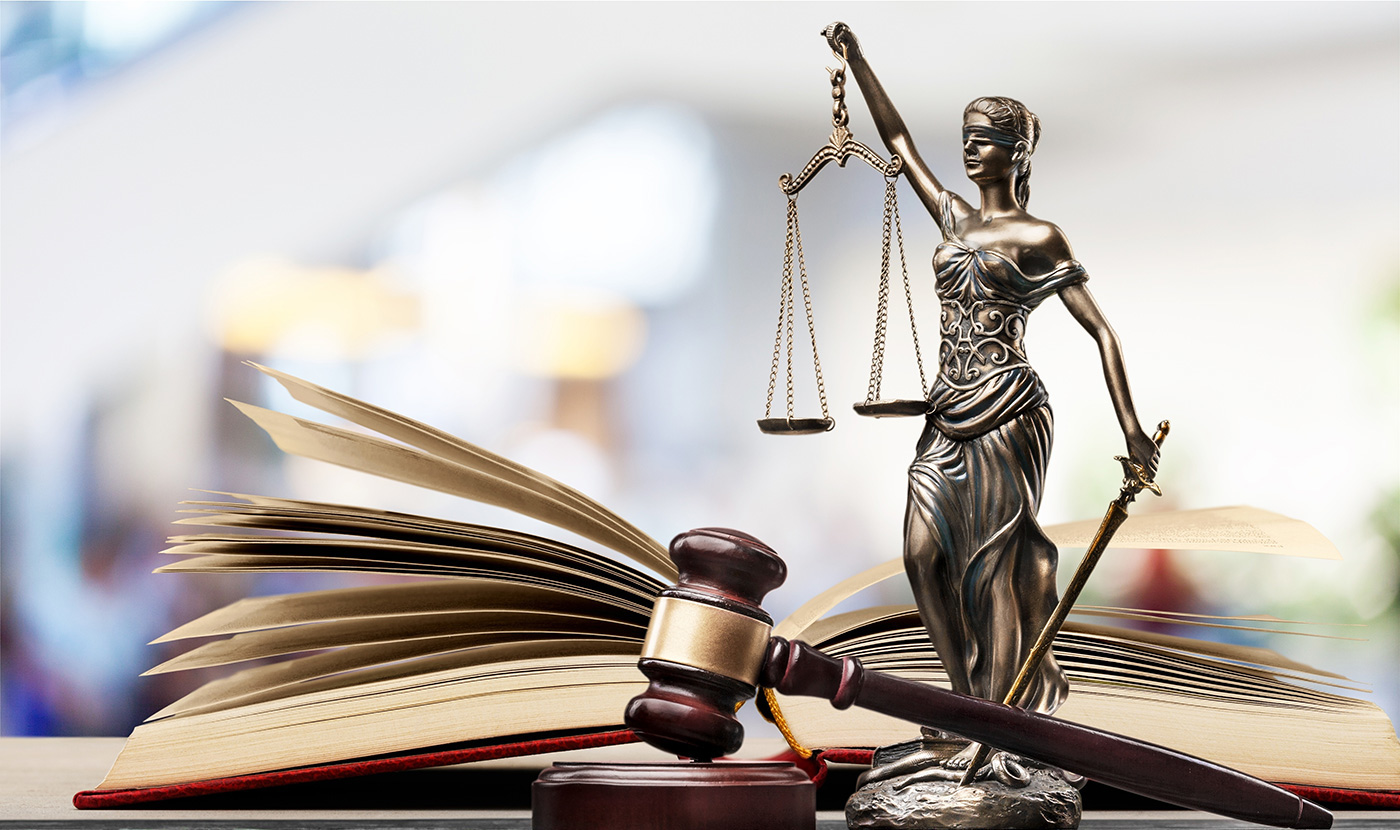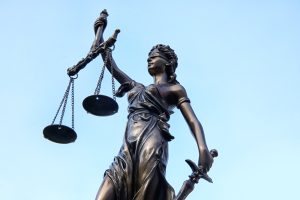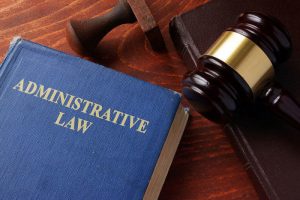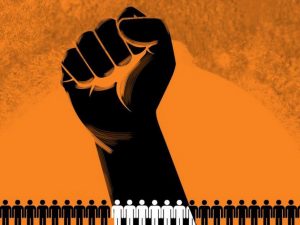“THE LAW IS KING. For as in absolute governments the King Is Law, so in free countries the law OUGHT To Be King; and there ought to be no other.”
Thomas Paine
Table of Contents
Introduction
The development of administrative law is to be attributed to a change of philosophy in
the role and function of the State. The shifting of gears from ‘Laissez Faire State’ to ‘Social Welfare State’ has resulted in a change of role of the State and has give the rise to a lawful state where Rule Of Law is prominent above all other.
‘Rule of Law’ is neither a ‘rule’ nor a ‘law’, rather it is a doctrine of ‘state political morality’ which aims to maintain a correct balance between the ‘rights’ and ‘powers’ between the individuals and between the the state to make it a free and civil society.
It is a fundamental principle that governs societies and ensures that everyone, including individuals and institutions, is subject to and accountable to the law. It is based on the belief that laws should be fair, predictable, and transparent, and such laws should be applied equally to all members of society.
Meaning & Definition Of Rule Of Law
The derivation of the phrase ‘ Rule of Law’ is from the French phrase ‘la principe de legalite’ which implies ‘principle of legality’. By this phrase it refers to a government based on principles of law and not of men.
The expression “The Rule of Law” has to be distinguished from the phrase “A Rule Of Law”. The latter phrase is used to designate some particular legal rule like the rule against perpetuities or the rule that says we have to file our taxes by a certain date. Those are rules of law, but the Rule of Law is one of the ideals of our political morality and it refers to the ascendancy of law as such and of the institutions of the legal system in a system of governance.
According to Black’s Law Dictionary: “Rule of Law” means legal principles of day to day application, approved by the governing bodies or authorities and expressed in the form of logical propositions.
According to Oxford Advanced Learner’s Dictionary: “Rule of Law” means the situation in which all the citizens as well as the state are ruled by the law
According to the Supreme Court: “The concept of rule of law means the authority of law courts to test all administrative action by the standard of legality.”
History Of Rule Of Law
The Rule of Law has been an important ideal in our political tradition for millennia, and it is impossible to grasp and evaluate modern understandings of it without fathoming the historical heritage behind it.
Aristotle
The heritage of argument about the Rule of Law begins with Aristotle. He stated that “the rule of law” is preferable to that of any individual.” This is because individuals possess flaws and could tailor government to their own individual interests, whereas the rule of law is objective.
The rule of law is better than that of any individual, suggesting every member of society, even a ruler, must abide by and follow the law. The rule of law is linked to the principle of justice, meaning that everyone within a society (including both private citizens and government officials) are subject to the law, and that those laws are administered fairly and justly. The intention of the rule of law is to protect against arbitrary governance.
He also formulated the question of whether it was better to be ruled by the best man or the best laws?, And approached that question realistically, noting that it depended not only on the type of law one was considering but also on the type of regime that enacted and administered the law in question.
John Locke
John Locke wrote that freedom in society means being subject only to laws made by a legislature that apply to everyone, with a person being otherwise free from both governmental and private restrictions upon liberty.
Locke’s Second Treatise of Government argues for the rule of law as just and rightful politics, not only in the fundamental legislation that is the constitution but also in regular governance by the legislature. Locke also argues for executive prerogative, the power of doing good without or even against law during contingency and necessity.
Unfortunately, Locke complicated matters by adding a substantive principle of respect for private property: “ The Supreme Power cannot take from any Man any part of his Property without his own consent”, and any law that purports to do so is of no validity.
Montesquieu
Montesquieu’s work on the Rule of Law is best known in connection with his insistence on the separation of powers, particularly the separation of judicial power from executive and legislative authority.
Dicey
A.V. Dicey, an eminent British jurist and Constitutional law theorist advocated the theory of Rule Of Law in his book “The Law Of The Constitution”. According to him ‘No man is punishable or can be lawfully made to suffer in body or goods except for distinct breach of law and no man is above the law. The term Rule of Law thus, means the paramountcy of Law over Government.’
The basic features of Rule of Law as per Dicey:
- Law does not recognise any special rights for any individual or group of individuals.
- Law does not recognise any distinction between one individual and the other on the basis of religion, race, sex, etc.
- None is punished without proper trial.
- All will be tried by the same court under the same law.
- The rule of law does not give scope to absolute and arbitrary powers to the executive.
Criticism Of Dicey’s Theory Of Rule Of Law
Dicey’s Rule Of Law Theory faced many drawbacks and challenges. Some of such criticisms were:
- Dicey propounded individual liberty and criticized administrative discretion but he failed to distinguish between discretion given to public officials by a statute and the arbitrary discretion claimed by the King.
If discretion is opposed to the rule of law then an apex court like our Supreme Court which has discretionary power to admit or reject an appeal or application would contravene the rule of law because it possesses this power and can exercise it without assigning any reasons.
- Dicey wrote in the hey-day of laissez-faire and he dealt with the rights of individuals not with the powers of the administration.
- He ignored the privileges and immunities enjoyed by the crown under the cover of the Constitutional maxim that the king cannot do any wrong and also ignored many statutes which conferred discretionary powers on the executive, and could not be called into question or tested in ordinary Courts.
- Dicey’s picture of the Englishmen protected by the Rule of Law, and the Frenchmen deprived of that protection because public authorities in France enjoyed privileges and immunities is not recognised as a distorted picture.
- Dicey created a false opposition between ordinary law and special law and between ordinary Courts and special tribunals when he says, Firstly, that the rule of law required the equal subjection of all classes to the ordinary law of the Courts and Secondly, that the rule of law was inconsistent with administrative law and administrative tribunals, which he himself recognised that it may be necessary to create a body of persons for adjudicating upon the offenses or the errors of civil servants as such adjudication may be more effective in enforcing official law and moreover mere presence of a well established law for all would not serve the purposes.
- When Dicey said that wide discretionary authority was inconsistent with the Rule of Law he might have expressed his political philosophy, but he certainly did not express a principle of the English Constitution for in fact wide discretionary power existed in England.
Characteristics and principles associated with the rule of law
- Supremacy of the Law: The rule of law asserts that the law is supreme and applies to everyone, regardless of their status or position. No one is above the law, including government officials, and they are subject to legal limitations and accountability.
- Equality before the Law: The law should treat all individuals equally, without discrimination or favoritism. It ensures that no one is privileged or disadvantaged based on their social status, wealth, or other personal characteristics.
- Due Process & Fairness: The rule of law emphasizes the importance of due process, which includes fair and impartial legal proceedings. This involves the right to a fair trial, the presumption of innocence until proven guilty, access to legal representation, and the opportunity to present evidence and arguments.
- Legal Certainty & Predictability: Laws should be clear, accessible, and understandable to all members of society. They should be applied consistently and predictably, enabling individuals to know and understand their rights and obligations.
- Independent Judiciary: An independent judiciary is a crucial component of the rule of law. It ensures that judges and courts are free from external influences and can make impartial decisions based on the law and evidence, without interference from the executive or legislative branches of government.
- Protection of Human Rights: The rule of law promotes and protects human rights, ensuring that individuals’ rights and freedoms are upheld and respected. It serves as a check against arbitrary exercise of power and provides a framework for safeguarding civil liberties.
- Accountability & Transparency: The rule of law requires transparency in legal processes, decision-making, and governance. It holds individuals and institutions accountable for their actions and promotes openness and accountability in public administration.
Adoption Of Rule Of Law In India
The status of the rule of law in India is a befuddling conundrum. The rule of law in India is a unique concept for many reasons. The Constitution expressly includes certain substantive social and economic goals and mandates the state to achieve those goals, giving the state a primary role in society. It also envisages equality not as an empty positivist attribute, but as a substantive concept that includes social and economic equality.
Upendra Baxi observes, ”The Indian Rule Of Law stands here normatively conceived not just as a sword against State domination and violation and historic civil society norms and practices but also as a shield empowering an encyclopedic regime of “progressive” state intervention in the life of civil society.”
There are a plethora of cases where the concept of rule of law was discussed and came into light. Some of the cases are as follows:
ADM Jabalpur v. Shivkant Shukla
This case is also known as “Habeas Corpus case”. It is one of the most important case when comes to rule of law. The question that was raised before the hon’ble court was that whether there was any rule of law in India apart from Article 21 of the Indian Constitution. It was in context relating to the proclamation of emergency where the enforcement of Articles 14, 21 and 22 were suspended.
Chief Settlement Commissioner, Punjab v. Om Prakash
In this case, the Supreme Court observed“ In our constitutional system, the central and most characteristic feature is the concept of rule of law which means, in the present context, the authority of law courts to test all administrative action by the standard of legality. The administrative or executive action that does not meet the standard will be set aside if the aggrieved person brings the matter into notice.”
In Som Raj v. State of Haryana, the Supreme Court observed that “The absence of arbitrary power is the primary postulate of Rule of Law upon which the whole constitutional edifice is dependent. Discretion being exercised without any rule is a concept which is antithesis of the concept.”
In the case of Binani Zinc Limited Vs. Kerala State Electricity Board and Ors. (2009) Justice S B Sinha declared that “It is now a well settled principle of law that the rule of law inter alia postulates that all laws would be prospective subjects of course to enact an express provision or intendment to the contrary.”
Conclusion
The rule of law is a cornerstone of democratic societies and is essential for fostering stability, justice, and respect for human rights. It provides a framework for resolving disputes, upholding individual freedoms, and promoting the common good.



